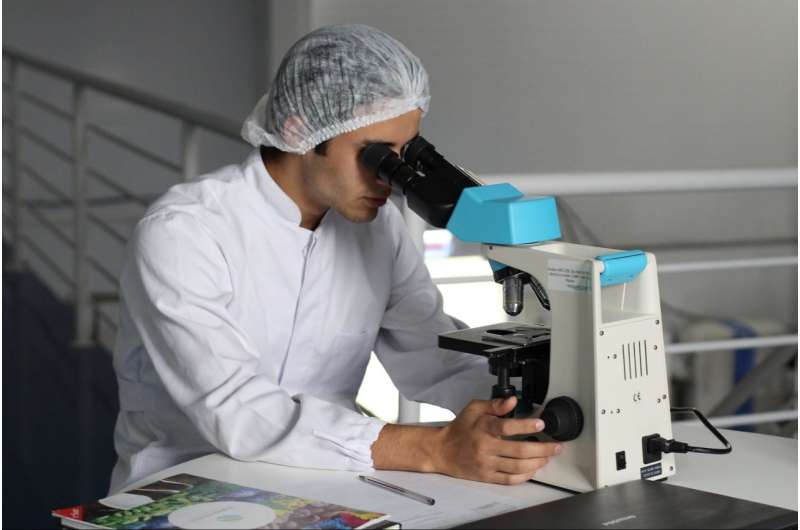Research could signal safer generation of mesh implants

Research into the use of collagen in tissue engineering could signal a new generation of safer mesh implants for women.
An international team, including University scientist Dr Dimitrios Lamprou, an expert in pharmaceutics and drug delivery, examined how collagen – the most abundant protein found in the human body – could be utilised in the creation of the 'scaffolds' commonly used in tissue engineering.
The challenge facing doctors using scaffolds in tissue engineering applications lies in controlling the way the fibres being used physically morph and interact with the host body's normal physiological function.
Although tissue scaffolds commonly contain antibiotic drugs to inhibit bacterial infection, increasing complications resulting from the use of widely-used mesh implants to repair damaged or weakened tissue in the abdomens of some women have been documented in recent years.
The number of complications associated with mesh insertions and recent media coverage relating to the lawsuit against the NHS for the current use of polypropylene mesh inserts has made the development of a new generation of mesh inserts more urgent.
Dr Lamprou, of the Medway School of Pharmacy, who was one of the study's two corresponding authors, found that the addition of collagen caused an overall decrease in fibre morphology and average fibre diameter, and consequently making the mesh material softer. The use of collagen also facilitated the more efficient release of the antibiotic drugs contained in the insert.
The findings suggest that the process of incorporating natural polymers, such as collagen, can successfully modify tissue scaffolds and that this modification may be useful in the compatibility and utilisation of tissue engineered structures within the human body.
The paper, titled "Electrospun collagen-based nanofibres: A sustainable material for improved antibiotic utilisation in tissue engineering applications," was published in the International Journal of Pharmaceutics.
More information: Ivan J. Hall Barrientos et al. Electrospun collagen-based nanofibres: A sustainable material for improved antibiotic utilisation in tissue engineering applications, International Journal of Pharmaceutics (2017). DOI: 10.1016/j.ijpharm.2017.08.071



















